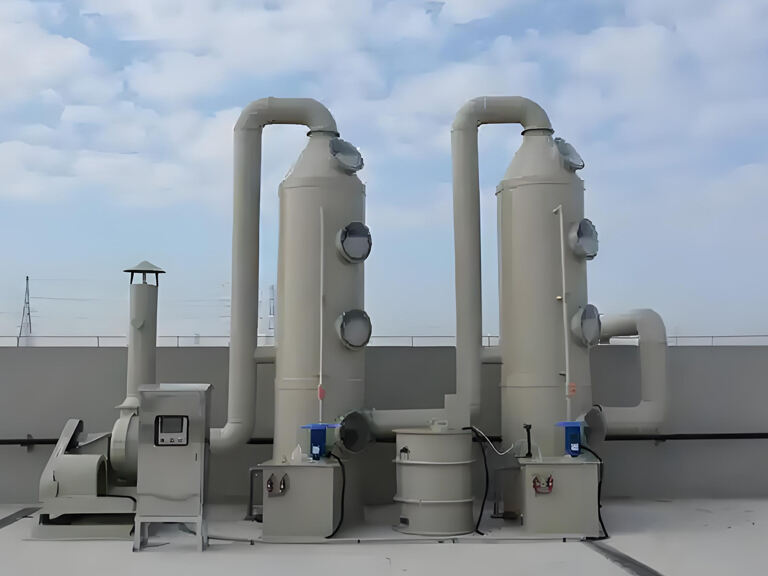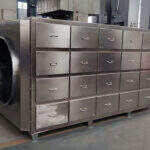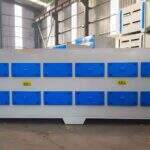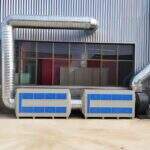1. Industrial Sources & Risks
In Acid-Alkali Exhaust Treatment HCl/H₂SO₄/NH₃ emissions from plating, chemical, and pharma industries cause equipment corrosion (pH<2 or>11) and acid rain (EPA data: contributes to 65% of SO₂ emissions).
2. Technology Comparison
| Solution | Concentration | Efficiency | OPEX | Recommended Equipment |
|---|---|---|---|---|
| Wet Scrubber | 500-5000mg/m³ | 90-95% | $0.05-0.1/m³ | BIO Series PP Scrubber |
| Biofiltration | 50-1000mg/m³ | 85-92% | $0.03-0.06/m³ | Biofilter |
| Carbon Adsorption | <300mg/m³ | 95-98% | $0.12-0.18/m³ | Acid-Resistant Adsorber |
| Thermal Oxidation | 1000-20000mg/m³ | 98% | $0.23-0.3/m³ | Catalytic Oxidizer |
| Ionic Liquid | All ranges | 99% | Custom | Advanced System |
3. Selection Criteria
-
Materials:
-
Strong acid: FRP/PP (pH 0-3)
-
Strong alkali: 316L SS (pH 11-14)
-
-
Velocity:
-
Scrubber: 3.3-4.9ft/s
-
Biofilter: 1-2ft/s
-
-
Energy Use: Biofilter consumes 67% less power than scrubbers
4. Case Study
A semiconductor plant adopted “alkaline scrubber + biofilter” to treat HCl/NH₃ mix, achieving ROI in 23 months.
5. FAQs
Q: How to handle high-humidity exhaust?
A: Use BIO Condensing Dehumidifier (reduce to<80% RH)
Q: Best solution for dusty acid fumes?
A: BIO Venturi Scrubber (dust removal>95%)





